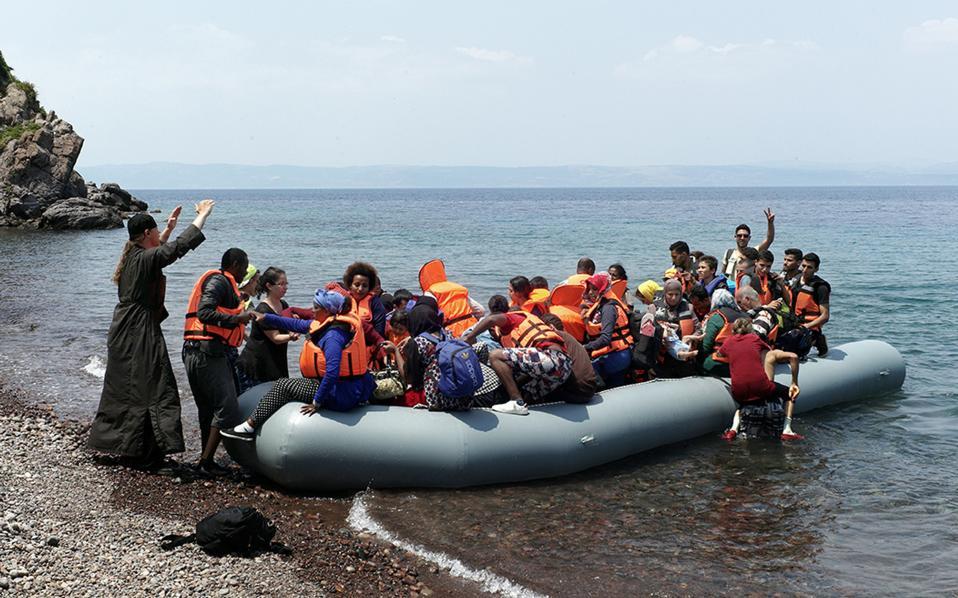If predictions by the Greek Immigration Ministry are to be believed, the refugee centers on the Aegean Islands may experience catastrophic conditions as another 25,000 migrants are set to arrive from Turkey by year-end, the V4 news agency reports.
While the holding camps set up on the five most affected islands – Lesbos, Chios, Samos, Leros and Kos – have a total capacity to house six thousand migrants, the number of people staying there has already exceeded 30.000 in recent days. According to the Greek immigration ministry’s estimates, this year could see the arrival of additional 25.000 people which could result in catastrophic conditions, even if authorities manage to relocate 10.000 people from the islands to the mainland, as planned. The new Mitsotakis Government plans to speed up the relocation of migrants from the hard pressed islands onto the mainland, but this creates a different problem, as they quickly find their way to Macedonia and further north toward the European Union countries, prompting new arrivals to the islands in the process.
There is no other way. Some islands have more migrants than residents,” Panagiotis Nikas, the Governor of the Peloponnese Peninsula told Greece’s national broadcaster ERT.
Authorities have to act urgently because – in violation of the EU-Turkey refugee agreement from 2016 that allowed the EU to return all refugees and migrants arriving illegally to the Greek islands to Turkey, only 102 people were sent back in the nine months between January and September 2019. The severity of the situation is demonstrated by the fact that the number of irregular migrants arriving from Turkey this year is 23 per cent higher compared with the same period last year, with the vast majority heading to the Greek islands. There were days in September when the islands saw the arrival of over 800 migrants.
Many make a bid to begin their journey before the cold sets in, spurred on by Turkey’s new, tougher line against irregular migrants from Iraq and Afghanistan, as Turkish legislation refuses to recognize their refugee status. The number of people taking the sea routes is also on the rise because many Afghan guest workers, who have lost their jobs in Iran because of the US economic sanctions, will most likely try their luck in Turkey




Comments are closed for this post.